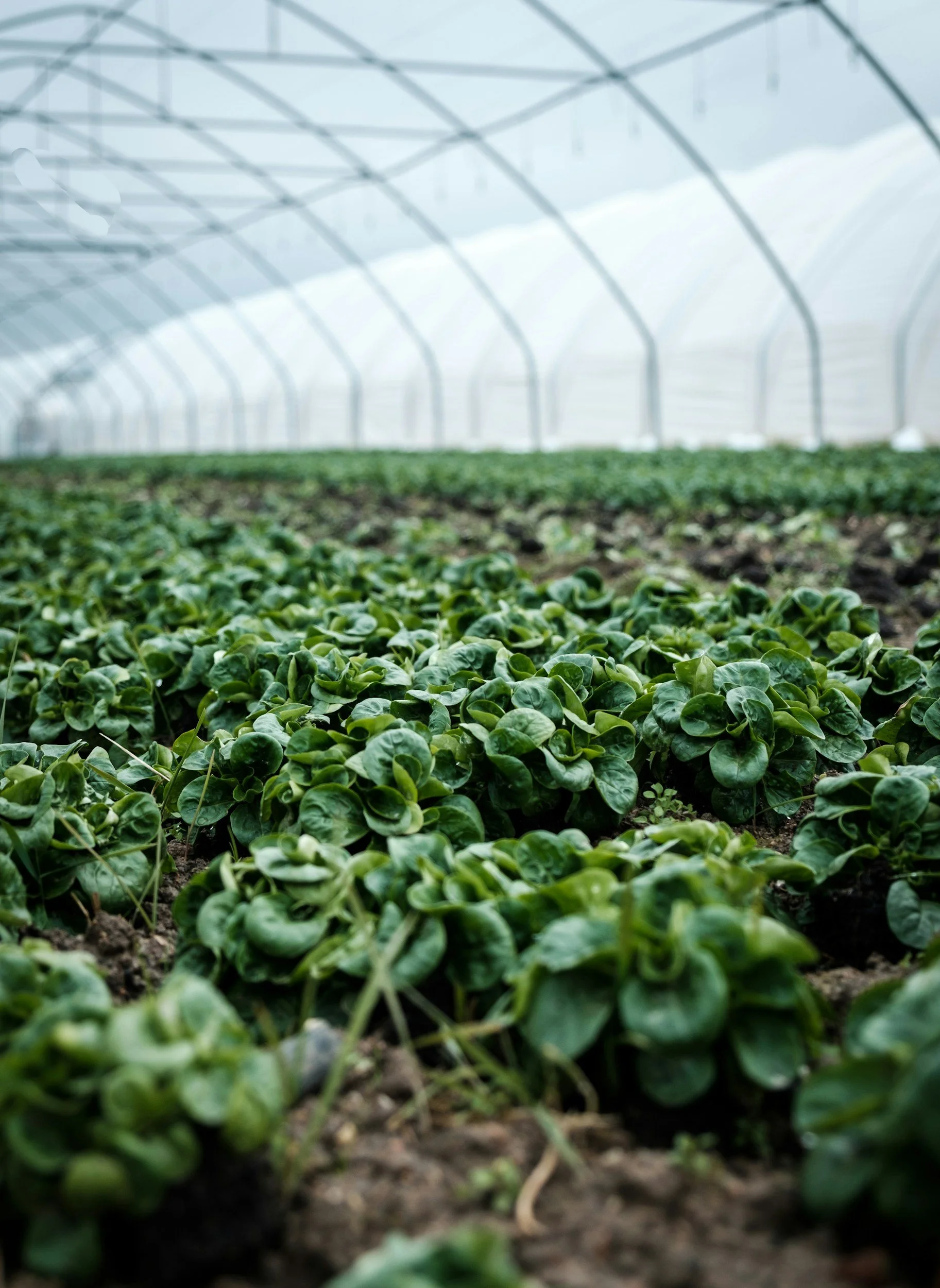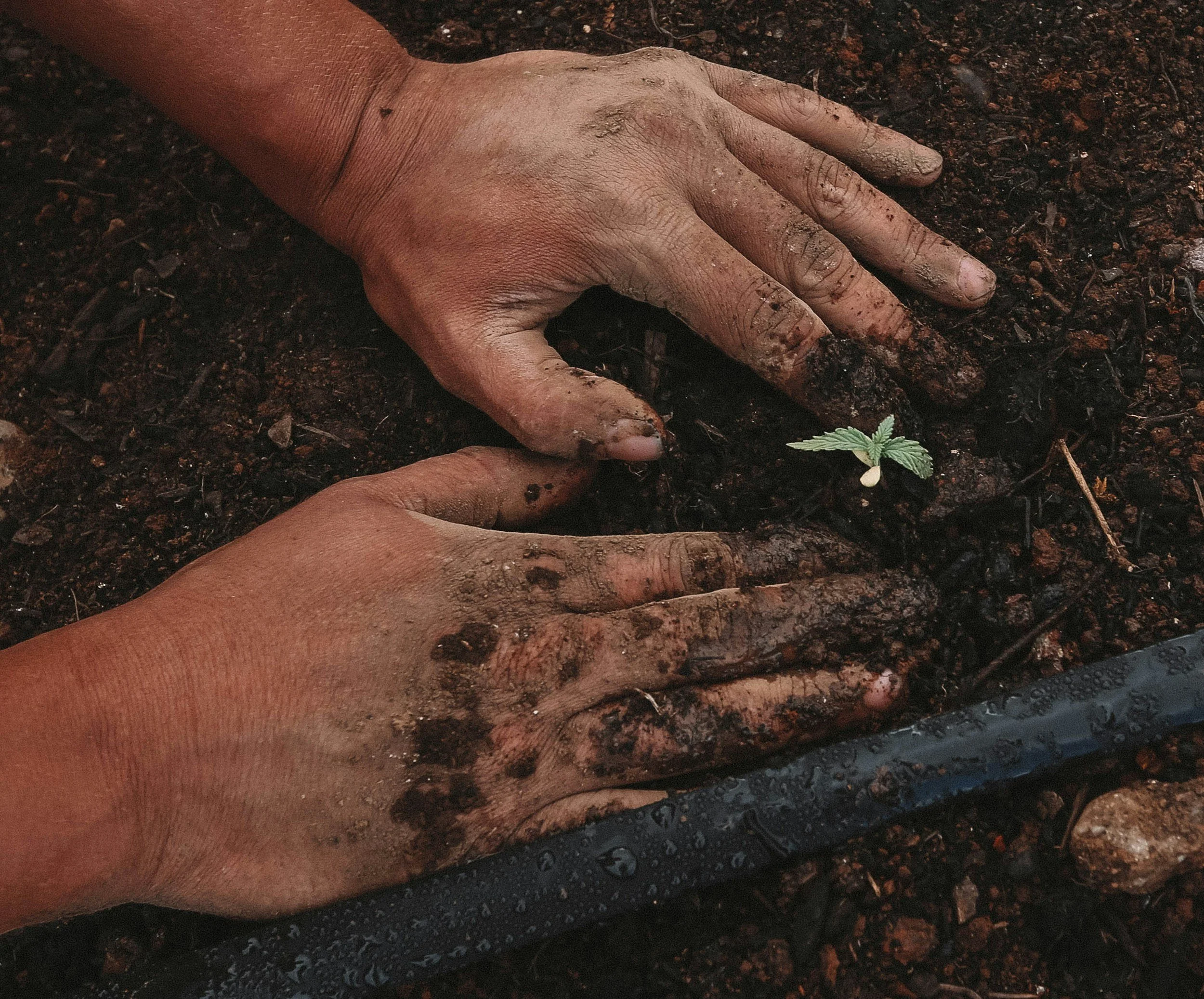
Regenerative Farmer Training Program
Training the next generation of farmers who will nourish Northeast Ohio
The average American farmer is nearing 60 years old, and climate instability is reshaping how we grow food. The need for local food resilience has never been more urgent.
At Crown Point, we believe resilience starts with people. Growing not only the food that sustains us, but the next generation of skilled, regenerative growers. For more than 35 years, our 115-acre farm has been a living classroom for regenerative agriculture, food justice, and community healing.
Now, we’re launching a new chapter with a hands-on, full-season Regenerative Farmer Training Program designed to prepare beginning farmers to become leaders in sustainable, community-rooted agriculture.
Growing Farmers Who Grow Communities
Our Regenerative Farmer Training Program is a full-time, paid, immersive learning experience that runs from ~March-October each season. Each year, three farmers-in-training will join our farm and team to learn, work, grow alongside Crown Point’s experienced growers, educators, and community partners.
From seed to harvest, trainees will gain the technical skills, confidence, and real-world experience needed to operate small-scale, human-powered farms—whether one acre or ten.
“This program is ideal for aspiring farmers, food-justice advocates, and future land stewards who want to build resilient and equitable food systems in Northeast Ohio and beyond.”
— Ian Roberts, Executive Director
Program Overview
March - October (8 months)
Full-time, paid position
Cohort Size
Three trainees per season
Program Focus
Regenerative agriculture, market gardening, food security, ecological literacy, and community-centered farming
What Trainees Will Learn
Our Regenerative Farmer Training Program offers comprehensive, hands-on education across the entire growing season:
Regenerative Growing Practices
Soil-building techniques: crop rotation, cover cropping, mulching, composting
Hands-on experience with low-till systems
Organic management of pests, weeds, and diseases
Field Skills and Infrastructure
Daily field operations: bed prep, planting, cultivation, weeding, and harvest
Use of essential tools: hand tools, broad forks, walk-behind tractors, etc.
Irrigation installation, troubleshooting, and water-conservation practices
Harvest-to-Market Skills
Weekly harvest planning and execution
Wash/pack workflows and post-harvest quality standards
Cooler management, storage, CSA preparation, and distribution
Farm Planning and Leadership
Seedling propagation, greenhouse management, season extension
Crop planning, succession planting, and basic recordkeeping
Leading volunteer groups and co-managing community workdays
Exposure to food-security partnerships and Crown Point’s Produce Donation program
Additional Hands-On Experiences
Seed saving and plant breeding basics
Soil testing and fertility planning
Tractor skills (as appropriate)
Community engagement through education and events
Working in a diversified farm system with perennials, herbs, and rotational crops
Why Crown Point?
115 Acres of Learning
Train on a historic, mission-driven farm with vegetable fields, pollinator habitat, greenhouses, orchards, and community teaching spaces.
Direct Community Impact
Crown Point grows thousands of pounds of produce for local food-security partners—trainees play a vital role in feeding our community.
Education and Mentorship
Learn from seasoned growers committed to regenerative, ecological, and community-focused agriculture.
Holistic Training Environment
Beyond production skills, trainees experience the deeper aspects of farm life: land stewardship, ecological literacy, community building, and personal resilience.
Our farm offers hands-on training in both proven organic practices and innovative, climate-smart techniques. In addition to annual row crops, participants gain direct experience with perennial agriculture, high-tunnel production, rotational systems, and fruit cultivation.
This work is deeply collaborative. Students, researchers, volunteers, community partners, and local institutions all contribute to and learn from our living landscape. Together, we are building a healthier, more equitable, and more climate-resilient regional food system—one grower at a time.
Who Should Apply?
This program is designed for:
Aspiring farmers seeking full-season, hands-on learning
Individuals committed to food justice and ecological health
People looking to start their own small-scale farms or market gardens
Career changers exploring regenerative agriculture as a profession
Recent graduates seeking immersive agricultural training
No prior farm experience is required—just curiosity, commitment, and a strong work ethic.
Applications now open for 2026!






